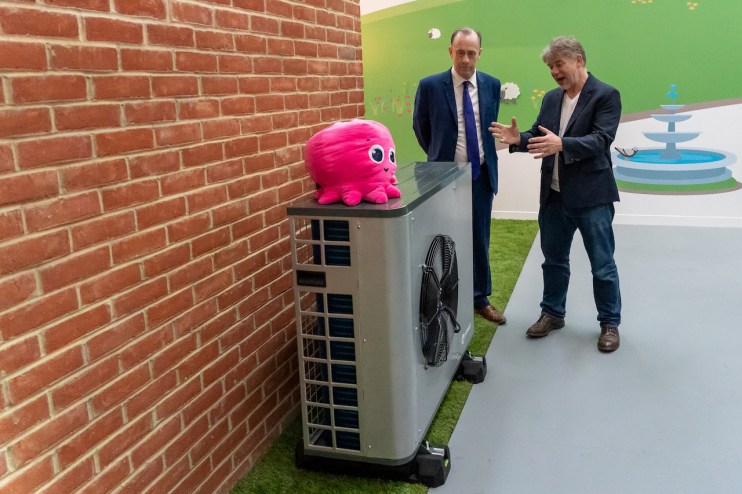More engineers needed to meet heat pump targets and net zero goals, reveals UK charity

Not enough people are being trained as heat pump engineers to meet government targets for installations, warned charity Nesta.
Its latest report estimates there are currently only 3,000 trained heat pump engineers in the UK, but that at least 27,000 will be needed in the next six years to meet its ambitions to overhaul heating systems across domestic households.
This means training more new engineers every year than are currently in the whole industry, requiring increases of 4,000-6,000 per year.
Heat pumps are a low-carbon alternative to a gas boiler that uses heat surrounding a property in the air or ground to supply heat for the property’s hot water system.
The UK government has set out a target to increase annual installation numbers from around 30,000 before 2020 to 600,000 by 2028.
This is required to meet its longer-term target of net zero carbon emissions over the next three decades, the UK needs to replace roughly 25m oil and gas boilers with low-carbon heating systems.
The report also highlights that new heat pump engineers will need to be recruited from among both qualified gas boiler engineers and people outside the industry.
However, an analysis of engineer job adverts finds that there is no financial incentive for gas boiler engineers to take on heat pump installation training – as wages for these jobs are broadly lower than for gas boiler installations and training can cost thousands of pounds.
Codrina Cretu, senior analyst of Sustainable Future at Nesta said: “A shortage of trained heat pump engineers could put a spanner in the works of the government’s net zero target. We will need thousands more heat pump engineers trained every year to make real progress in providing low-carbon alternatives to gas boilers and meet increasing demand for qualified installers, but this won’t happen while there is a risk of engineers spending more on training than they will make from it.”
Cretu called on Downing Street to consider cash incentives to get more people and companies training heat pump engineers, alongside direct routes to training via low carbon heating apprenticeships and college courses.
Energy efficiency key to reducing demand ahead of winter
Earlier this year the Government unveiled a three-year £450m Boiler Upgrade Scheme, which could provide savings of up to £6,000 per year on heat pumps for households wanting to replace their boilers.
The supply security strategy committed a further £30m to heat pump manufacturing.
However, the report outlines that a £5,000 payment to 5,000 heating engineers per year would cost £25m per year – a more cost efficient way of boosting heat pump expansion plans than subsidising homeowners.
Boosting energy efficiency has become an increasingly important factor for the Government ahead of a challenging winter when there could be supply shortages if Russia cuts off gas into Euripe.
Prime Minister Boris Johnson is reportedly developing plans to insulate hundreds of thousands more homes before winter, as the Government scrambles to ensure vulnerable energy users are protected from spiralling energy bills.
He has told minister to divert over £1bn from existing schemes to focus on insulating poorer households, according to The Times.
One proposal is to top up the “energy company obligation” which is levied from bills and funds energy-efficiency measures for poorer households.
Ministers could even divert money from the £1bn public sector decarbonisation scheme, which focuses on making schools, hospitals and other public buildings more energy efficient.
Number10 did weigh up up using money from the £450m boiler upgrade scheme that subsidises heat pumps, but ministers were advised that it was too late to divert the funds.